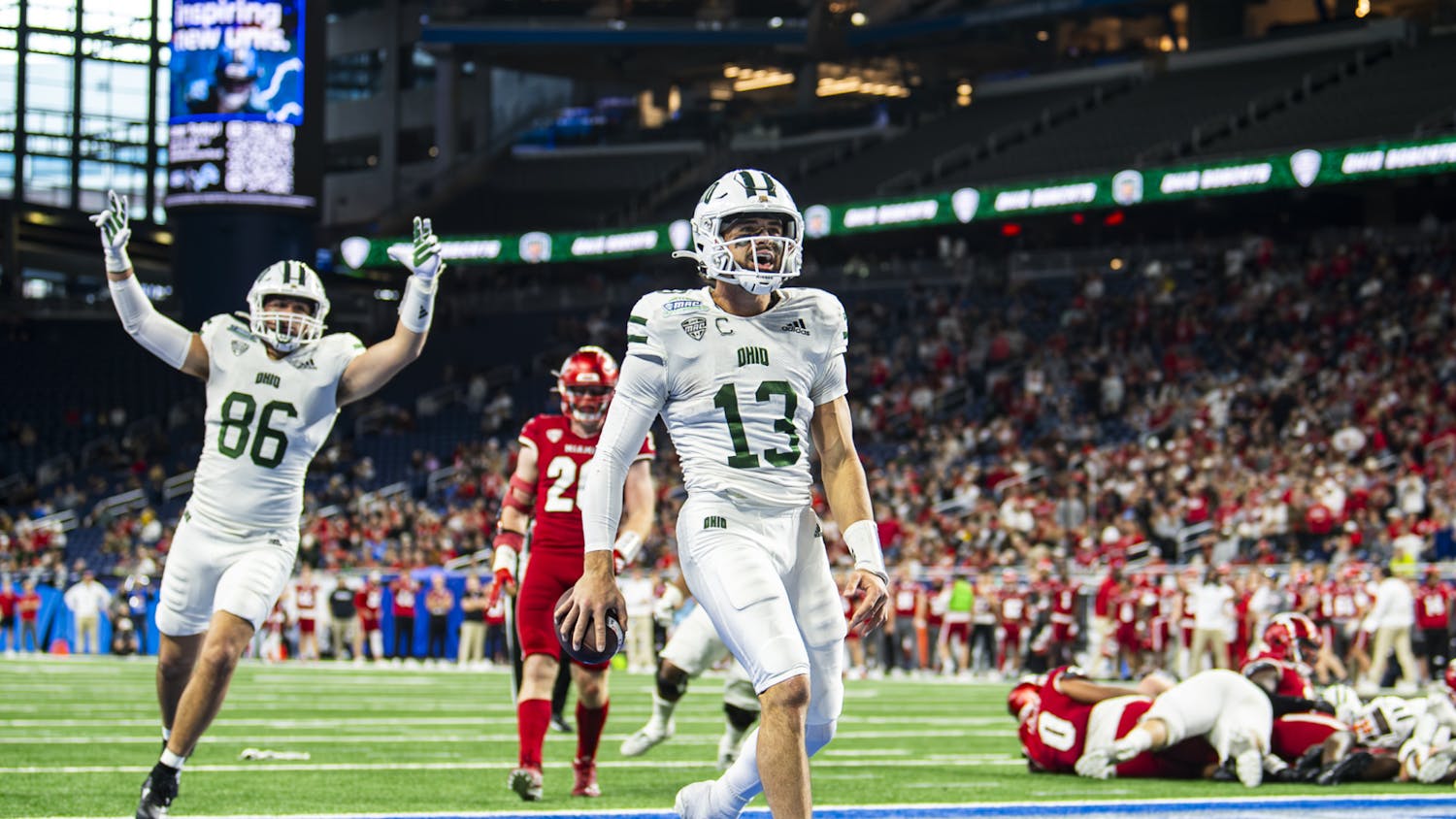2 hours, 14 minutes, 38 seconds.
That was former Bobcat Craig Leon’s personal-best time at last Monday’s Boston Marathon.
1 hour, 55 minutes, 5 seconds.
That much time elapsed between the time Leon crossed the finish line and when the fanfare and festivities of a runner’s holiday ended.
It was then that twin explosions killed three people near the finish line and injured almost 200.
“It’s such an uplifting day for the city of Boston; it’s such a celebration,” Leon said. “For that to happen, especially where it did — it’s just really bothersome.”
Leon, who grew up in Van Wert, Ohio, was staying in the Fairmont Copley Plaza hotel located no more than 400 meters from the finish line.
Within minutes of the explosions, Leon said the hotel was locked down with security guards at every entrance not permitting anyone to enter or leave.
“We were told to stay in the lobby area for the first hour after everything happened,” Leon said. “They were doing a sweep of the building and the surrounding area, and they thought we were safest on the ground floor.”
Media outlets and emergency personnel were stationed outside the hotel, obstructing Leon’s view of the chaos and commotion.
“We were learning about things the same way as everybody else, through the TV coverage, even though we were right there,” he said.
He managed to tweet a message confirming his safety before he was unable to use his phone because cellphone service in the area was overloaded.
He did not speak with his parents nor grasp the true measure of what happened until he was back in his hotel room later that night.
Back on the course, people were rushing to the scene, providing whatever they could to help those injured by the explosion.
Donald Hutcherson, a sociology professor at Ohio University, said it’s natural for people to react the way they did.
“Collective action research on citizens in disaster situations suggest that people usually show a high level of concern and generosity towards disaster victims,” Hutcherson said in an email. “Altruistic acts such as the donation of blood and related assistance by citizens is typical during disasters.”
Leon said he is not sure if he would have been in that group of first responders had he been out on the course when the explosions took place.
“It’s something I’ve wrestled with a lot,” Leon said. “(I’m) amazed at the amount of people who, when those things went off, went running right into it — I’m not sure if that would be me or not. I hope I never have to really find out ”
Leon is back in Eugene, Oregon, and deciding if he will compete in the upcoming IAAF World Championships in Moscow in August.
“I’ll be on a short list of runners who would run this summer at the World Championships in Moscow,” Leon said. “It’s still up in the air as whether or not I would do it.”
“I have my eyes set on a fall marathon. Even if given the chance, I don’t know if I would choose to do it or not.”
Ohio track and field coach Clay Calkins said Leon is among the best he’s ever coached.
“He was an all-star for us, and he just keeps getting better and better,” Calkins said.
nr225008@ohiou.edu




